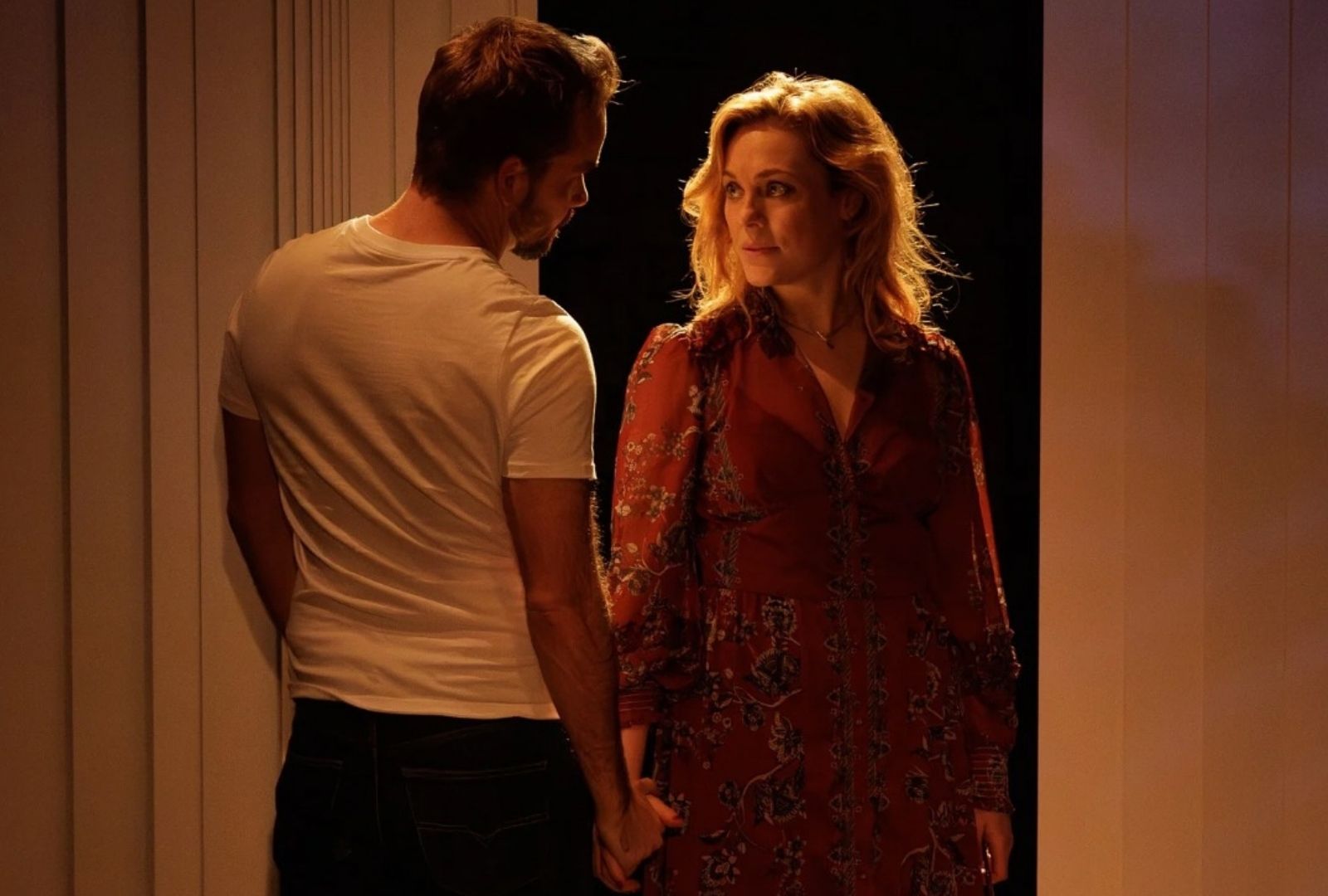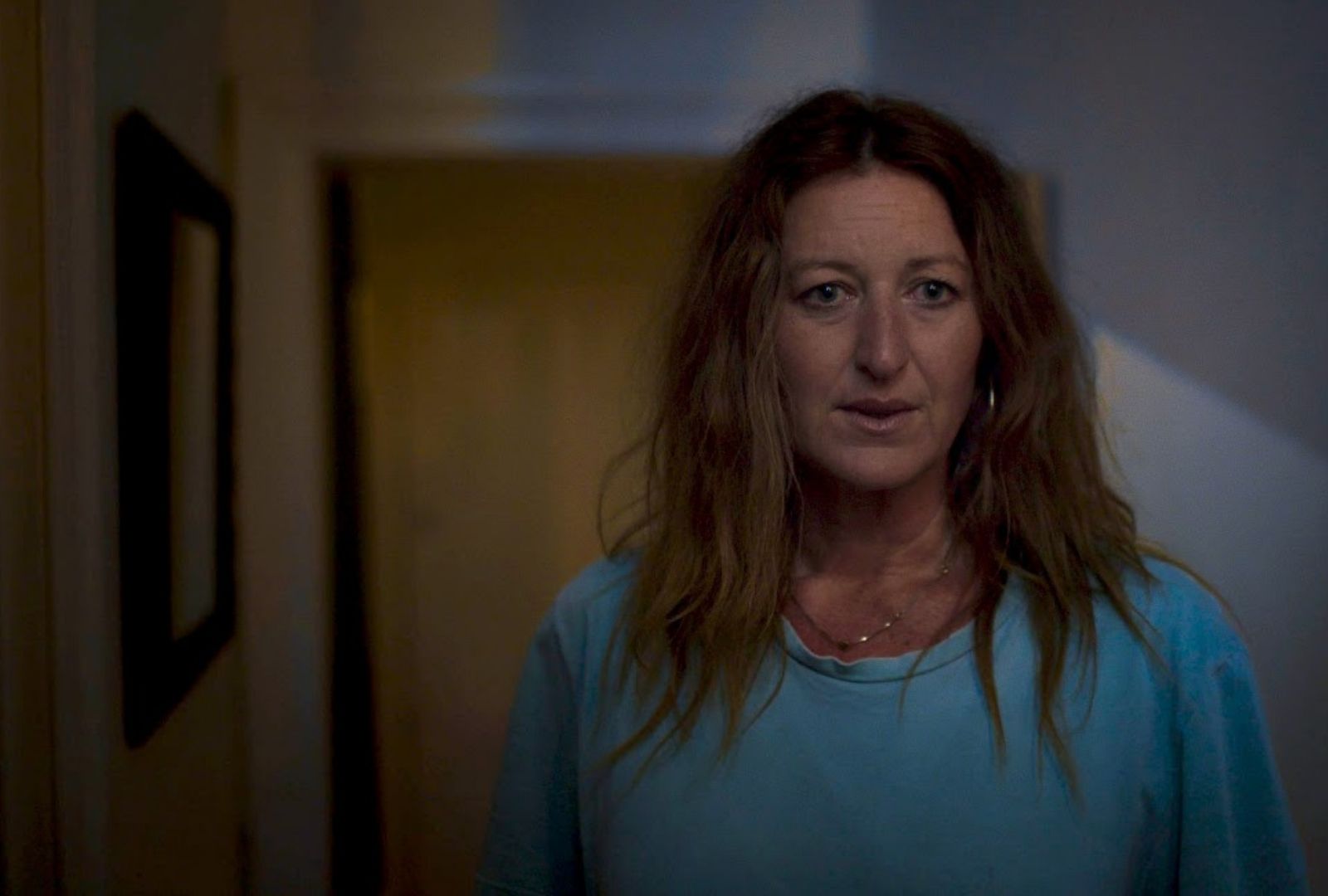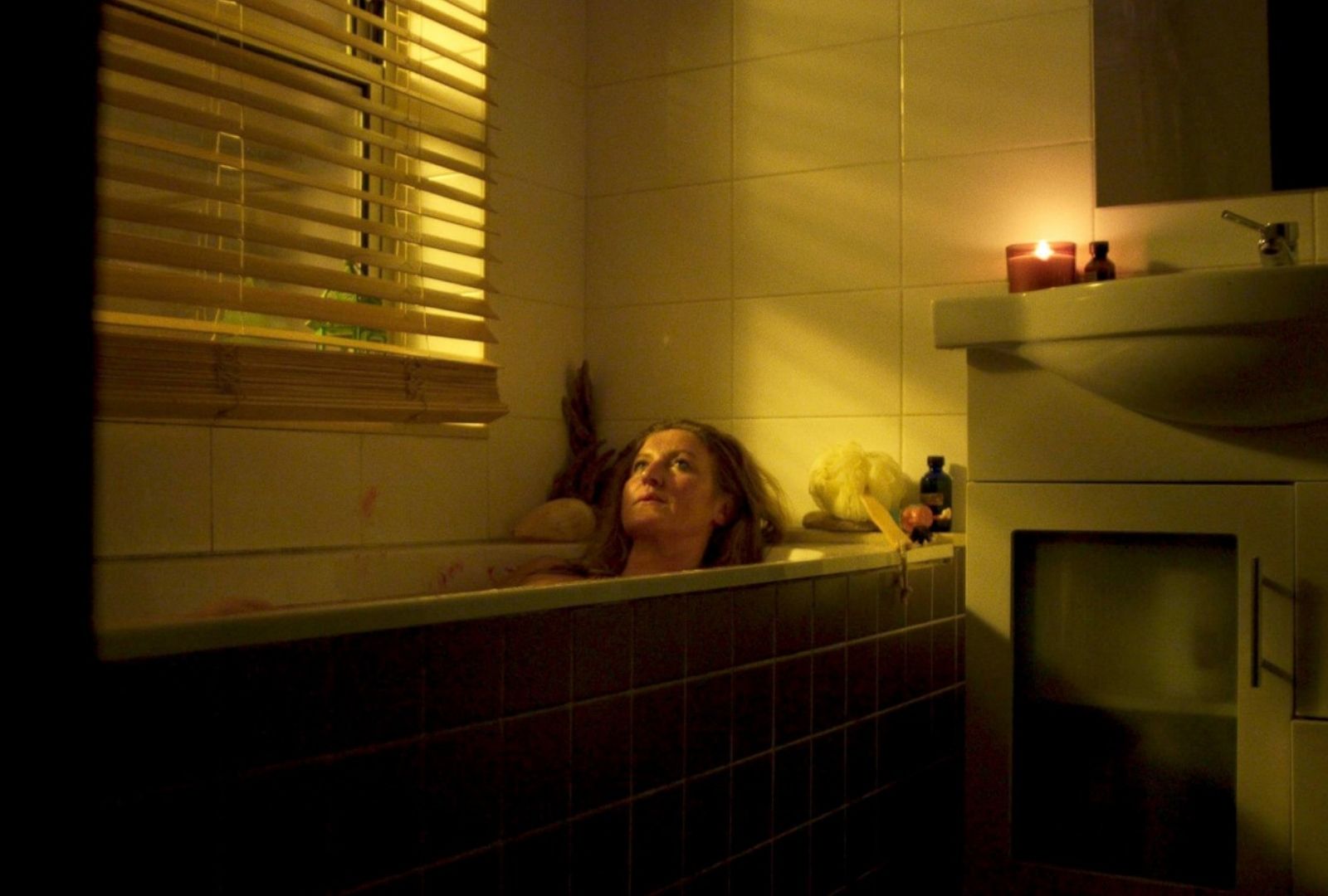Cristabel Sved (Directing, 2007) has built a career directing powerful and socially resonant stories, including Belvoir’s Gwen in Purgatory and Sydney Theatre Company’s Before/After, often centred on complex female characters. Her latest theatre project is Betrayal by Harold Pinter, a complex and layered story that has been an exciting challenge to tackle. She also discusses her short film Date 3, a psychological thriller about female vulnerability, starring fellow alum and Amazon Prime’s Deadloch star, Kate Box (Acting, 2003).
What excites you most Harold Pinter’s Betrayal? What drew you to this particular work as a Director?
I really love the absolute necessity of collaboration in theatre, and having never directed a Pinter play before I very much wanted to take on and lead the challenge that Betrayal demands of all involved. It’s a great play, and my favourite Pinter play, which is considered to be a masterpiece, and his most accessible work. The cleverness of the script, and the way in which it focuses in on the minutiae of human behaviour and relationships drew me to it. But it’s no walk in the park, and to get all the theatrical aspects – performances, staging, lighting, sound, AV, direction – to work together to bring out the play’s magic is a balancing act. I think the creative team, most of whom I’ve worked with on past projects, have done a wonderful job on our production at the intimate Old Fitz theatre. I’ve also felt very lucky to have been able to cast and work with such fine actors that were also compelled to dig deep and meet the challenge that this detailed and nuanced work requires, and to work with the amazing Sport For Jove, who were the producing company.

Unsurprisingly, the theme of ‘betrayal’ is central to this story, can you tell us a bit about how this is explored?
The play is famously based on Pinter’s own seven year affair with British journalist Joan Bakewell, who was also a colleague’s wife, and it’s pretty clear he was betraying his ex-lover by telling this tale in the years after as there are many commonalities between the real and dramatic story: the literary professions of the men; the flat where they had their afternoon rendezvous, and in response to this she wrote a play herself, “Keeping in Touch” about their affair from her perspective.
Pinter starts at the end of the affair and works backwards which effectively sidesteps any melodrama and allows the audience some ironic distance as audience members to look at who is betraying whom and the way in which they betray themselves in what is essentially a kaleidoscope of betrayals! A lot of the comedy derives from the sheer extent of betrayal among the three characters and the way in which they delude themselves. So yes, it’s an aptly titled play.
What do you hope audiences walk away thinking or feeling after experiencing Betrayal? Are there particular questions you want them to sit with?
I think, even if we haven’t all had affairs, each of us would have struggled with confronting truths about ourselves, our life choices and relationships. In Betrayal, we witness the messiness and absurdity of human behaviour but it’s brilliantly focused like a superbly written comic essay. There’s an overarching theme on the nature of truth that I think has force and relevance in today’s world. At the end of the play (and the story’s beginning) you can reflect on the cost to each character of their lies and betrayals. It’s really up to each person what they take from a show and each performance can have its nuances that affect possible meaning – the wonder of theatre and a wonderful play!
Emma’s journey is central to this story, a struggle to find her voice and liberation in a male-dominated world. How did you and fellow alum, Ella Scott-Lynch (Acting, 2004), collaborate to bring Emma’s complexity to the forefront?
I feel very lucky to have had Ella audition for the role of Emma. Ella brings all the qualities (strength, sensuality, earthiness, intelligence) that I thought were right for the role of Emma and this production. Emma, as a woman of her era, has for me a telling balance of confidence and vulnerability stemming from being amidst the burgeoning feminist ideas and aspirations of her educated class without yet having seen too much of change to economic and social realities. The issues that she deals with are still relevant today for many woman. I think Ella’s doing an amazing job each performance exploring those aspects of Emma and the sense of the forces affecting her character.

Are there particular lessons or mentors from your time at NIDA that still influence your work?
Yes, Helmut Bakiatis (Acting, 1965), Aubrey Mellor (Technical Production, 1969) and Peter Cooke (Design, 1974). Each one of them, in different ways, opened up ways of getting to the heart of a play and how the design can support the work. Helmut and Aubrey were constant fonts of information and had access to wide ranging literary references that inspired my thinking and have stayed with me today. All three were very supportive of me as a director and that had a very positive impact.
What do you consider to be the greatest highlights of your career?
I think The Beauty Queen of Leenane for Sydney Theatre Company and Alice in Wonderland for Sydney Festival. Both productions were wonderful experiences with great creative teams and casts with that sense of magic in the collaborations that you get sometimes working in theatre. Both productions seemed to impact audiences, years later people still come up to me and share their experience of those productions, which makes what we do feel really worthwhile and fulfilling. I’m also pretty happy with the last two projects I have just completed – Betrayal which is playing at the Old Fitz Theatre until 16th August and my short film Date 3.
As a creative, what stories are you most passionate about telling? What continues to drive you as a theatre maker?
My directing work has primarily been driven by strong female characters in stories that are socially relevant and that ask us to reflect on how we relate to each other. I strive to tell stories that put us in touch with our own experiences and the experiences of others that we may not have otherwise encountered, in the hope of creating understanding and compassion. Dark humour in the plays I direct are often a feature. I am always looking to push my approach with form and content to best evoke and inspire the unique story that is being told and make it feel relatable.

You’ve just completed Date 3, a short-film starring Kate Box (Acting, 2003), can you tell us a bit about this project? What has your collaboration been like?
After four years in the making, the funding finally fell into place to make my short film Date 3. With the brilliant acting talents of Kate Box (Acting, 2003) and Daniel Henshall, our fantastic crew, and post production expertise from Spectrum Films – we’ve ended up with a short film which I’m proud to say packs a powerful punch.
I wanted to make a psychological thriller that dealt with a grey area of emotional abuse that’s illusive and not easy to pin down. The genre has tended to represent women as over reactive and unhinged, and I wanted to play into this before subverting these expectations. Kate was the perfect actor to pull this off and she was in my head for the part from its conception.
Kate is also a great friend, so apart from the joy of her agreeing to go on this journey with me as an actor, she was also a fabulous and essential collaborator from the get-go with the script development, as well as things like brainstorming to find the funds to make it. She was also hugely encouraging and supportive as a fellow artist and mate to make Date 3, my first film, after many years directing theatre.
Date 3 is a psychological thriller that explores the vulnerability of the female experience. What inspired you to tell this particular story?
Violence by men against women is still a huge problem in our world and with that terrible reality as a backdrop I’m interested in how psychological and emotional harm is also perpetrated by men against women.
I thought the language of the psychological thriller genre would lend itself to a visceral exploration of this murky aspect. The film looks at a relatively new relationship, a third date, through the eyes of Ella, Kate’s character, who has had past traumas; and see and feel the fear and relived pain that can be experienced in everyday circumstances if there’s uncertainty. We also see a man, for whatever reason – entertainment, advantage, unawareness, in need of power – who behaves in ways that heighten those fears and uncertainties. We’ve played with some classic male-view horror tropes and as with any good thriller there’s a twist at the end.
Where/when can people watch Date 3?
You can watch DATE 3 on the AACTA TV website if you are an AACTA member.
The voting date will be announced soon. Voting closes on 6 October, 2025.
We’d love for people to watch DATE 3 there and, if they like what we’ve done, to please vote for our film so we can be in the running for a nomination which would help get it seen by a wider audience.
Watch here: DATE3 film
